Film Name:影 / Shadow
People really are different. Some individuals, no matter how they appear, inevitably draw countless stares and gossip.
Perhaps still holding a grudge after the “setback” of his previous film The Great Wall, Old Master Zhang—call him whatever you like—has now delivered a strikingly different Shadow (in stylistic impression) using a seemingly similar approach (cast lineup).
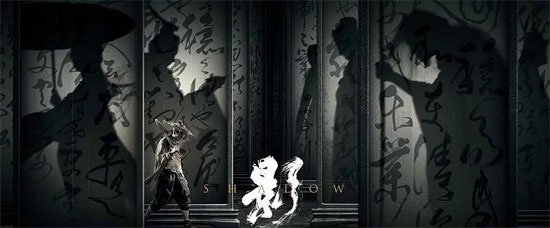
Same formula, different flavor. Zhang Yimou has grown “smarter” this time, striking a more precise balance between commerce and artistry. Crucially, he’s set aside pretensions to tell a solid story—ensuring “Shadow” won’t lack an audience.
[Friendly reminder: Spoilers ahead.]
When discussing Zhang Yimou, one cannot avoid his signature use of color; when watching “Shadow,” one cannot avoid its ink-wash painting-like visuals.
This is arguably the most “anti-traditional” work from the veteran director—replacing the high-saturation, vividly painted aesthetics with layered, interlocking shadows and light.
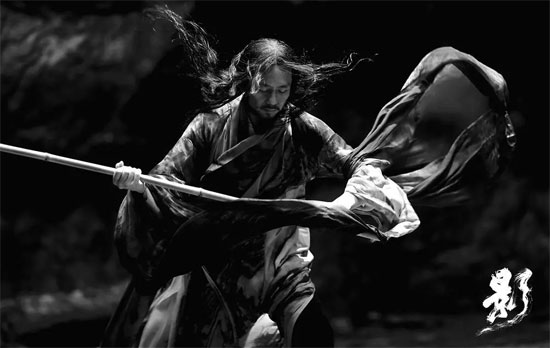
But “Shadow” is not merely a watercolor-style or black-and-white film. Beyond black, white, and gray, it is richly vibrant—featuring the intense yellow of skin, the misty blue of the sky, and the violent splashes of life’s crimson…
How much of its sometimes stark, sometimes hazy imagery one can appreciate depends on the viewer’s depth of understanding. Each person gains something different, but one thing is certain: few remain unmoved by such unrestrained splashes of ink.
This isn’t empty praise—Zhang Yimou’s “fundamental skills” are truly exceptional. Though whenever this is lauded, there are always those who sourly remark, “Just another victory of technique (and nothing more)…”.
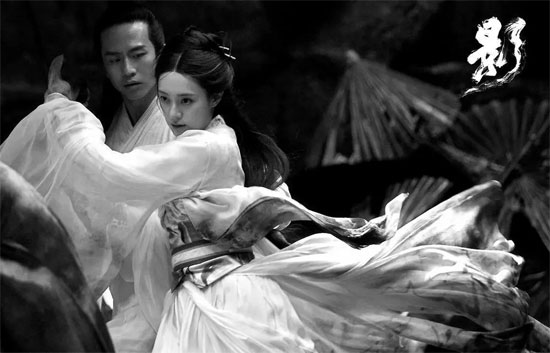
But let’s be honest: isn’t mastery of foundational techniques and artistic craftsmanship a strength? Wouldn’t it be strange not to leverage your strengths?
Of course, most audiences care more about the story—and in my view, while Shadow’s narrative isn’t groundbreaking, it admirably tells a straightforward tale without pretension. The director avoids forcing a “highbrow” narrative of profound suffering, instead focusing on humanity’s most primal, fundamental desire: survival—and striving for a better existence.
After Zi Yu, Grand Marshal of Pei Kingdom, was defeated by Yang Cang, the general of Yan Kingdom, he survived but gradually lost his vitality. He sought to reclaim Jingzhou and even plot to usurp the throne. His body double, Jingzhou, existed solely as Zi Yu’s “shadow” to fulfill his ambitions. He yearned to survive and even aspired to live a life of his own.
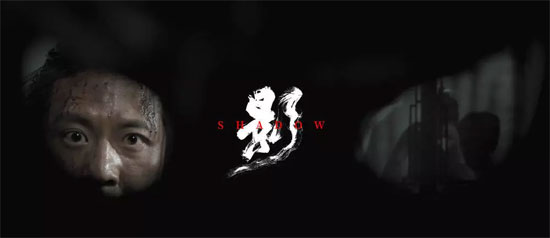
Eyes “peering in the shadows” permeate the film. They represent the duality of yin and yang born from the Taiji, Zi Yu’s lustful glances and jealousy toward Jingzhou’s Xiao Ai, Xiao Ai’s confusion and bewilderment between two men, and Jingzhou’s profound sorrow and joy as he redefines himself.
Personally, I believe the film’s tagline—”Who is the pawn? Whose chessboard?”—profoundly captures the essence of its myriad conflicts.
Zi Yu sees himself as the ultimate strategist. King Pei Liang, his stand-in Jingzhou, and subordinate Tian Zhan—all are his pawns. Through this chess game, he aims to ascend to the pinnacle of power.
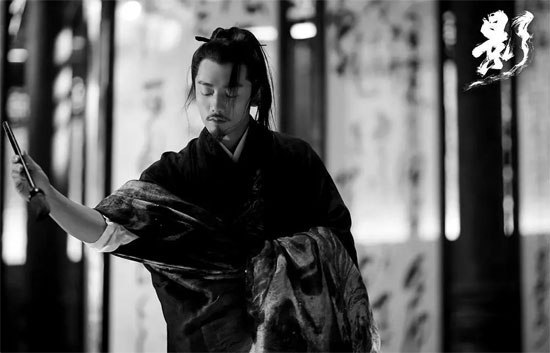
Pei Liang believed he was playing at a higher level. On the surface, he feigned utter incompetence, even sacrificing his younger sister Qingping. But in the end, he would reclaim everything that belonged to the Prince of Pei. Lu Yan, the opportunist; Zi Yu, the ambitious schemer; Jingzhou, the reluctant pawn—all were deliberately cultivated “puppets” in his scheme.
Beyond these two self-proclaimed “players,” were the “pieces” content to remain mere pawns?
The most telling example is Tian Zhan. As Zi Yu’s confidant, he stands to become the new military governor—a higher-ranking pawn—if his “master’s” plan succeeds. Yet if he were a two-faced schemer, secretly colluding with Pei Liang while leading the campaign to reclaim Jingzhou, plotting against Jingzhou himself, he might gain even more.
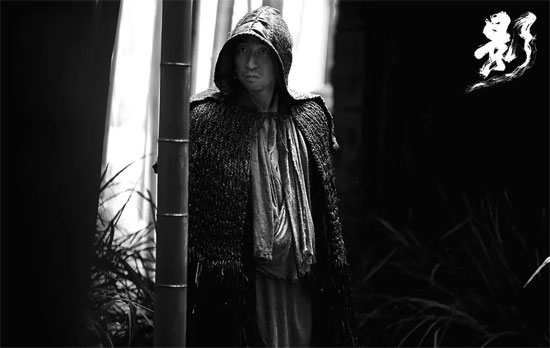
Of course, these are mere speculations. Yet within the context of the film “Shadow,” nothing is impossible.
The character with the most “substance” and “resonance” remains Jingzhou—a man seemingly without choice, yet repeatedly standing at crossroads.
From the moment he was brought to the Governor’s residence at age eight, Jingzhou’s fate was sealed: serving Zi Yu through life and death became his only path. Facing the unbeatable Yang Cang, delaying the siege by half an hour became his ultimate destiny.
Ziyu understood that mere “debt of gratitude” was insufficient to drive the present Jingzhou to die willingly. Thus, he gritted his teeth and tacitly accepted Jingzhou’s ambiguous relationship with Xiao Ai, even invoking “Mother” to intensify Jingzhou’s desire to survive and win.
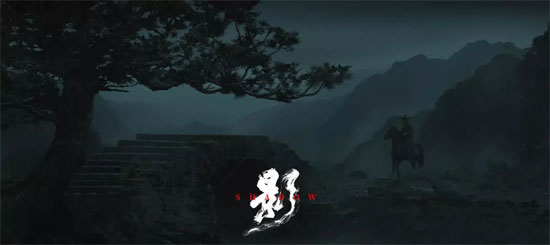
Yang Cang, knowing his son Yang Ping was dead, lost his composure and fought without strategy after three strikes. Jingzhou, knowing his mother still lived, clung to hope and managed to survive the chaotic battle.
Originally destined to be a sacrificial pawn, Jingzhou had been granted a second life. Could he now take his mother and flee the black hole of the power center?
Yet even a pawn that crosses the river remains a pawn—his mother’s murder and two waves of assassins drove Jingzhou back to his place… He had the chance to flee, to vanish forever. But he returned. He refused to accept being forever the lowest pawn. Even if the odds were one in ten thousand, he would push forward.
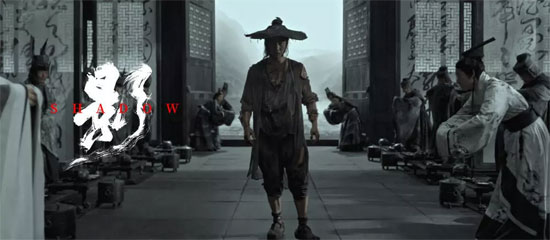
So, was it Zi Yu or Pei Liang (or even Tian Zhan) who killed Jingzhou’s mother? It doesn’t really matter—to Jingzhou, it’s all the same.
The final outcome was beyond Jingzhou’s imagination. This becomes clear when, after killing Ziyu and then Peiliang, he still keeps pleading, “I’ll find you an imperial physician”—he remains trapped in his “pawn mentality.” Only when all the players are dead will he finally undergo his final transformation.
Here, I can’t resist commenting on Zhang Yimou’s “personal agenda” woven into Shadow.
At the film’s opening, Xiao Ai casts a divination for the eldest princess, Qingping. The omen declared: “In this scheme, there is no place for women.”
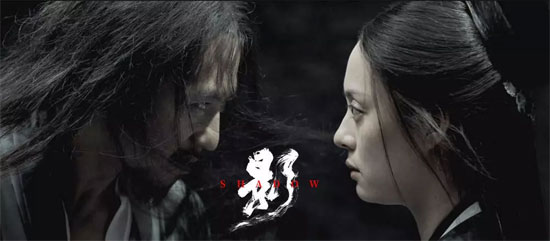
Reality seems to mirror this: in this chessboard, women find no foothold. Xiao Ai remains perpetually hidden behind the scenes, commanded and dismissed by the men around her. Qingping is merely a pawn in Pei Liang’s scheme, denied the right to know or refuse. Even when humiliated by the demand to become a concubine, she has no choice but to endure the injustice.
Yet, the film’s only two female characters make crucial contributions to the shifting tides of the entire plot.
Ziyu racked his brain but could not decipher Yang Cang’s supremely masculine sword technique. It was Xiao Ai who, drawing on the principles of yin and yang from Tai Chi, devised the counter-sword stance: wielding the Pei umbrella with a woman’s graceful posture, she entered the fray, using the ultimate yin to counter the ultimate yang, yielding to overcome strength.

In truth, both Jingzhou’s narrow victory over Yang Cang and the hundred elite warriors’ triumph over its garrison stemmed from Xiao Ai’s teachings on umbrella combat. Qingping, unable to bear the humiliation, joined Pei Kingdom’s elite assault on the city. Her stubborn resolve enabled her to perish alongside Yang Ping, achieving an unparalleled feat in reclaiming Jingzhou.
Water embodies yin; shadows are formless. Women, like water, permeate every corner of “Shadow”—the entire film unfolds amidst relentless, drizzling rain.
This mirrors Bruce Lee’s philosophy: “Be water, my friend.” Like water, be soft yet resilient, adaptable to all forms, yielding when necessary but never surrendering to adversity.

The film begins with Xiao Ai’s surveillance and ends with her surveillance—will she ultimately undermine Jingzhou to seize sole power, or will she and Jingzhou turn their staged relationship into reality and rule together? We are left to wonder.
From the very start, women have been part of this chess game. Water is not without its place; it is merely formless.
Please specify:Anime Phone Cases » Shadow 影 2018 Film Review: The chessboard of all beings—all are mere pieces.